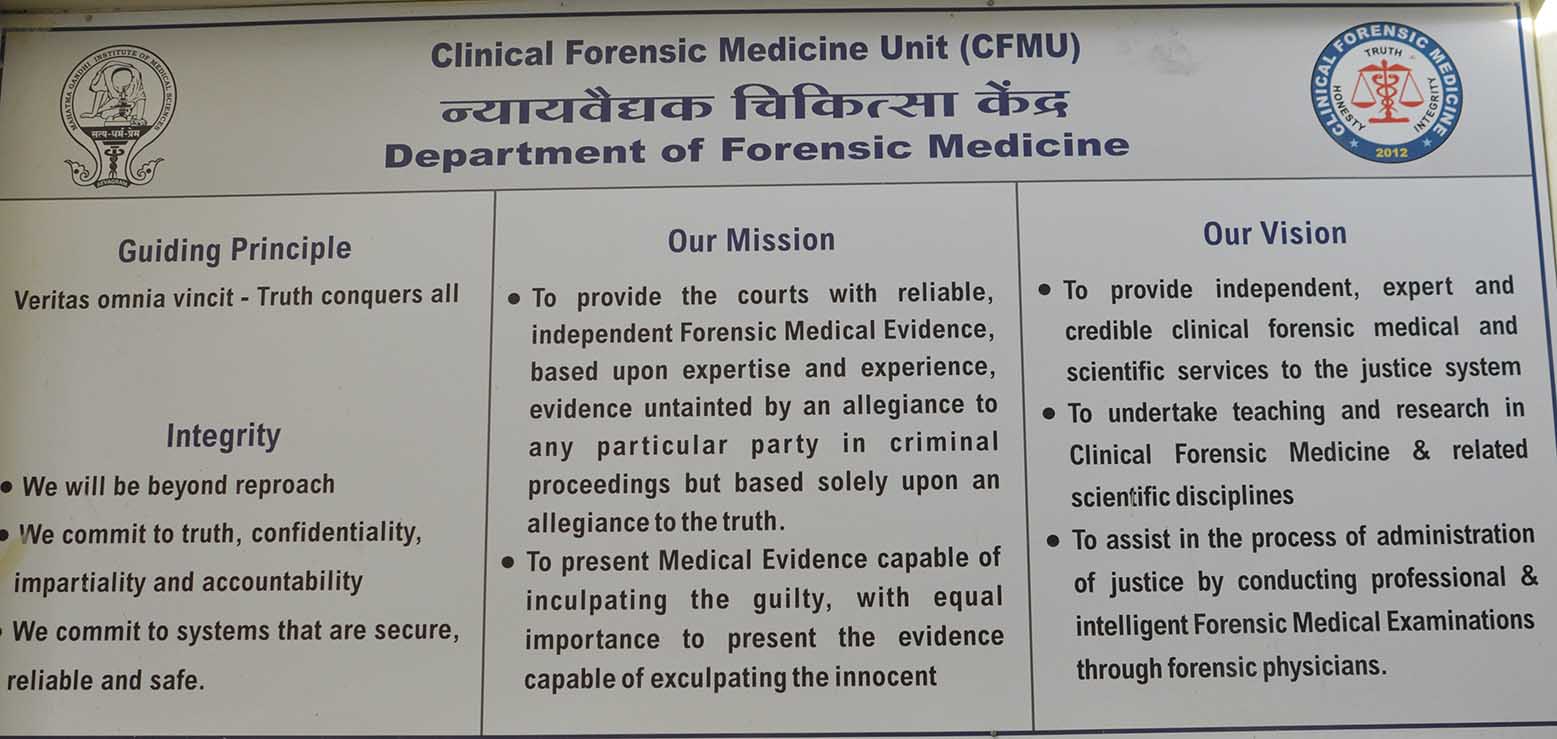Clinical Forensic Medicine Unit

MGIMS has a distinction of developing nation’s first Clinical Forensic Medicine Unit (CFMU). The unit handles all forensic issues related to the accidents and emergencies and also looks at medico legal problems of the inpatients. Located in the Accident and Emergency Section of the hospital, this unit offers it services 24/7. The Forensic Medicine consultants collect data form of all patients who seek healthcare in the accident and emergency unit of hospital because of accidents, injuries and trauma, assess victims of sexual assault and also deal with such issues as estimating the age of the patients and determining whether or not the person is alcohol intoxicated.
Now that the Forensic Medicine experts handle all medico-legal issues, the surgeons, orthopedicians and neurosurgeons and radiologist in our hospital focus on their specialties and are no longer required to spend their time in the courts for cross examinations.
The leitmotif of the unit is its social activism. Over the last decade, the unit, led by Dr Indrajeet Khandekar, has re-designed the way Forensic medicine in the country is being taught and practiced. For instance, based on suggestions offered by unit, the Government of Maharashtra has developed new formats and a manual for forensic medical examination of sexually assaulted cases. In addition, the government also decided to computerize postmortem reports.
Persons accused of sexual assault, have traditionally been asked several questions by the police that had no scientific, legal or rational basis. Similarly, they had their semen collected and preserved – a practice which lacked scientific evidence. The department has also been able to convince Maharashtra Government to stop such three-decade-old practices. The unit has also drafted guidelines for the Department of Health Research (DHR) & ICMRs on Forensic Medical Care for Sexual Assault Victims.
Of the several roles taken by the unit for shaping the emergency medicine practices in country, noteworthy is its suggestion for upgrading the emergency medical services. Dr Khandekar argued that the existing emergency services in the country are pathetic and needed to be quickly improved. The National Human Rights Commission took note of the argument and asked the Union Ministry of Health and Family Welfare to upgrade the emergency medical services.
Forensic Medicine and Toxicology is an important subject that medical students study during MBBS II. Dr Indrajeet Khandekar played a key role in revamping the Medical Council of India’s Graduate Medical Education Regulation of Forensic Medicine & Toxicology subject: Medical schools, countrywide, shall soon develop Clinical Forensic Medicine Unit- (CFMU) based on the existing unit in the MGIMS.
